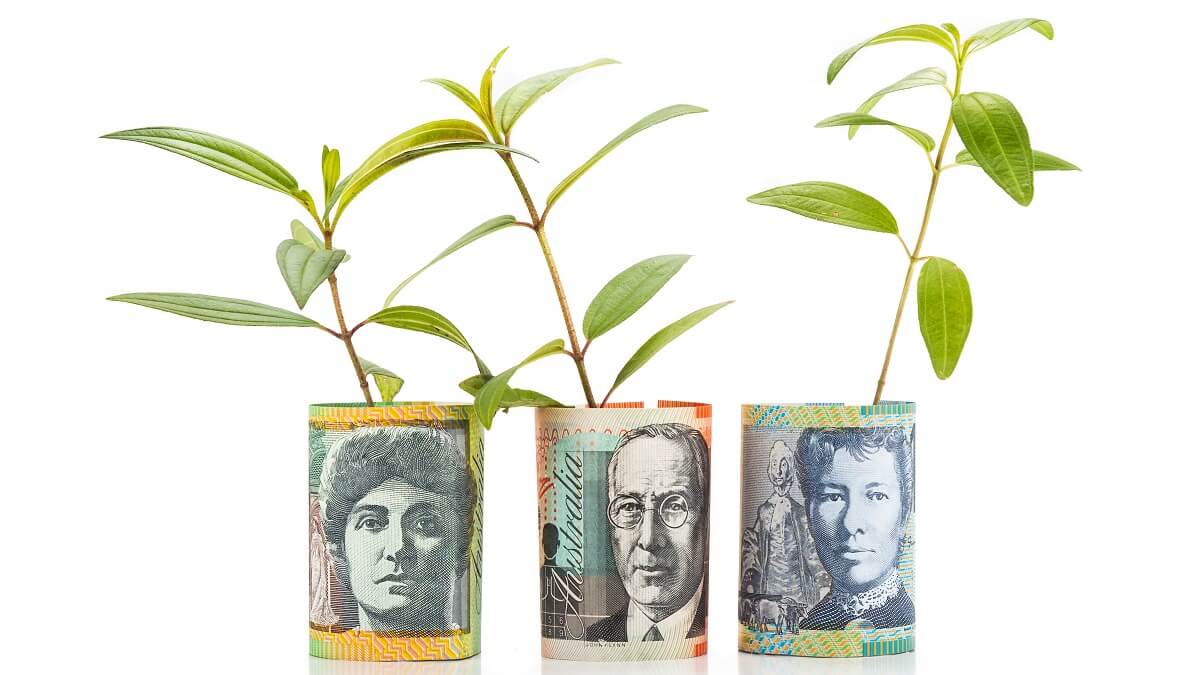Australia’s collective wealth experienced a notable surge over the past three years despite the economic challenges brought about by the COVID-19 pandemic – but there’s a catch.
According to the Roy Morgan Wealth Report 2023, the country’s wealth grew by a remarkable 7.0 per cent between March 2020 and March 2023, even after accounting for inflation.
The value of Australians’ debt increased more quickly than the value of their assets (53 per cent vs 22.2 per cent), but not enough to stop the growth in overall wealth – the total value of assets is now six times higher than the value of debt.
However, the success is not spread evenly throughout the nation. Half the population now accounts for 95.4 per cent of the nation’s net wealth, and the other half accounts for just 4.6 per cent.
The bottom 10 per cent of the population has had the toughest pandemic period, with their net wealth sliding backwards at a rapid rate. The average amount of wealth held by this portion of the population is down by more than 400 per cent since March 2020.
The lowest 10 per cent was also the only group to lose wealth over the last three years.
One of the primary factors driving this exceptional growth is the soaring total value of real estate, where there has been a staggering increase of 43.2 per cent, from $4.16 trillion to $5.95 trillion. This surge in home values has contributed significantly to the overall increase in Australia’s wealth.
The report further reveals that the richest 10 per cent of the population actually experienced a decline in their share of the nation’s wealth (42.1 per cent, down from 47.6 per cent) but not in the total amount they held.
On the other hand, the next wealthiest 40 per cent have seen an increase in their share of wealth, rising from 48.9 per cent to 53.3 per cent.
The report has highlighted the significance of homeownership as a means of generating wealth, in particular when looking at the top 10 per cent of Australians. This group is predominantly comprised of individuals with paid-off homes. In contrast, only 1 per cent of the wealthiest group are renters.
Michele Levine, CEO of Roy Morgan, highlighted the positive outcome of Australia’s wealth growth despite the challenging economic landscape.
“As a country, we have done pretty well since March 2020,” she says.
“And remember that’s not just since COVID, over that period we’ve also had 13 interest rate increases, crushing cost-of-living pressures and alarming inflation.
“So, to find ourselves 7 per cent wealthier now than back then, even after accounting for inflation, is a very good result.”
Has your wealth gone up or down over the past three years? Should more be done to improve wealth distribution in Australia? Let us know what you think in the comments section below.


Smoke & mirrors, the value of your property may have gone up significantly, however if you wish to sell it and move to another location you’re no better off and in most cases, worse off. Also, going by the information supplied in this article, The Reserve Bank Governor Philip Lowe should be applauded for his effort and not demonised by the gutter press, with their inaccurate sensationalism. People should take responsibility for their own position in life and not blame others. If you wish to take out a million-dollar loan to buy a house with a 5% deposit you get what you deserve for your lack of fiscal competence, bankruptcy in most cases. Jacka.
Agree with all that Jacka says. And will add that those complaining about rising interest rates need to take a look at the rest of the world where they are rising faster than in Australia.
The reason for mortgage stress is our overpriced real estate not our still low interest rates. I paid 17% on my home loan back in the 1980’s and people survived that because we didn’t pay today’s absurdly high prices to start with.
And sky high prices are going to stay with us because of the very high rates of immigration that all sides of politics seem to support.
Spot on David, there’s a grave lack of places for people to live and they insist on increasing immigration, if that’s not a recipe for disaster I’m not here. How about mobilising all the bludgers out there that don’t wish to work and receive generous benefits from the taxpayer. Then No Immigration Needed. I could also Scrap The Ridiculous Voice Referendum and put that money into health. Jacka.